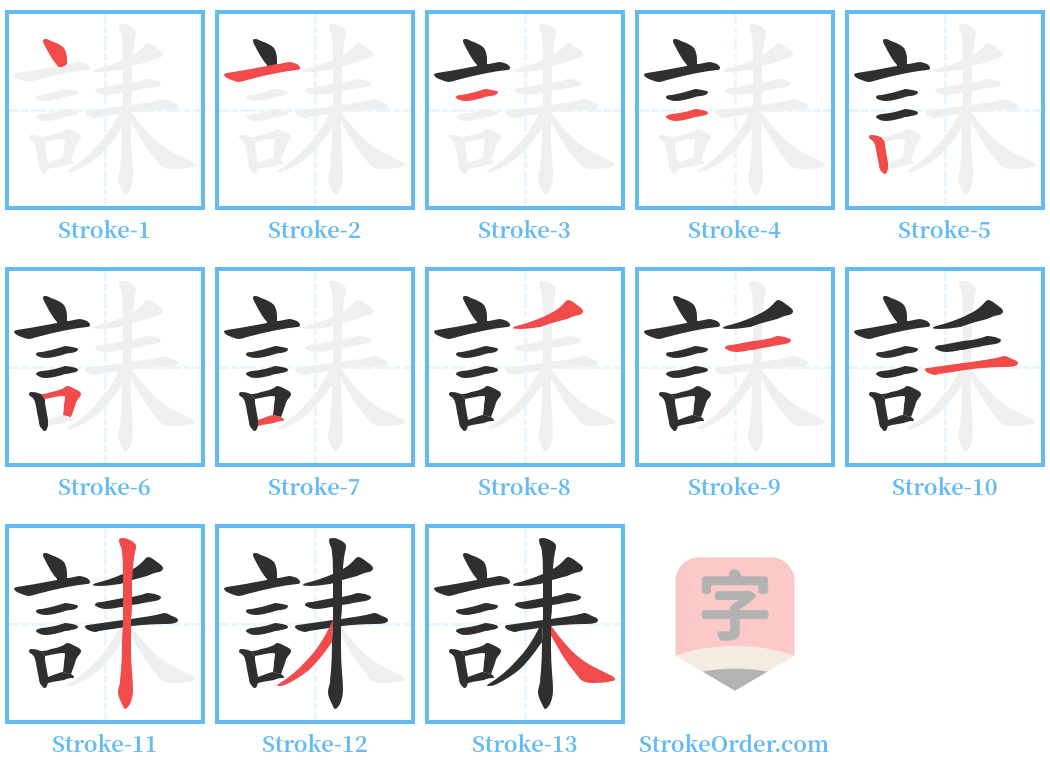誄 Stroke Order
Animated Stroke Order of 誄

Stroke Order Diagrams for 誄

Information of 誄
Pinyin
lěi
Radical
言
Strokes
13 strokes
Usage
★★
Definition
誄 lěi
1. In ancient times, it referred to a written account of the deceased's virtues and conduct, expressing mourning and establishing a posthumous title (mostly used in the context of superior addressing subordinate).
【English】: In ancient times, it referred to a written account of the deceased's virtues and conduct, expressing mourning and establishing a posthumous title (mostly used in the context of superior addressing subordinate).
2. A written piece mourning the dead.
【English】: A written piece mourning the dead.
3. A prayer for blessings. Also written as "讄".
【English】: A prayer for blessings. Also written as "讄".
誄 lěi
[Verb]
(Phonetic character composed of the element for speech and the phonetic sound "lěi". The original meaning: to narrate the deeds of the deceased during their lifetime, expressing mourning; it is also the basis for posthumous titles. Used only in contexts where a superior addresses a subordinate.) Synonymous with the meaning today of writing a eulogy.
【English】: This verb refers to the act of narrating the deeds of the deceased during their lifetime, expressing mourning; it is also the basis for posthumous titles.
誄 lěi
[Noun]
A written eulogy for the deceased.
【English】: A written eulogy for the deceased.
【Quotes】
1. From "Shuowen Jiezi": "誄" is a posthumous title. Composed of the elements for speech and "lěi". It lists the deeds of the deceased, which are read to establish their posthumous title.
2. From "Zhouli, Dazhu": "Sixth is called 誄."
3. From "Liji, Zengzi Asks": "One should not eulogize the elder when young."
4. From "Mozi, Lu Wen": "The 誄 refers to expressing the will of the deceased."
5. From "Zuo Zhuan": "When Confucius passed away, the duke mourned him."
6. From "Mozi": "The favored person of the Duke of Lu died, and the Duke mourned for them."
誄 lěi
[Noun]
A written eulogy for the deceased.
【English】: A written eulogy for the deceased.
【Quotes】
1. From "Zhouli, Dashi": "On the day of the funeral, a 誄 is read."
【Examples】
Also seen as: 誄文 (mourning words, also abbreviated as "誄"); 誄讚 (a text that lists the life deeds of the deceased and praises their virtues).